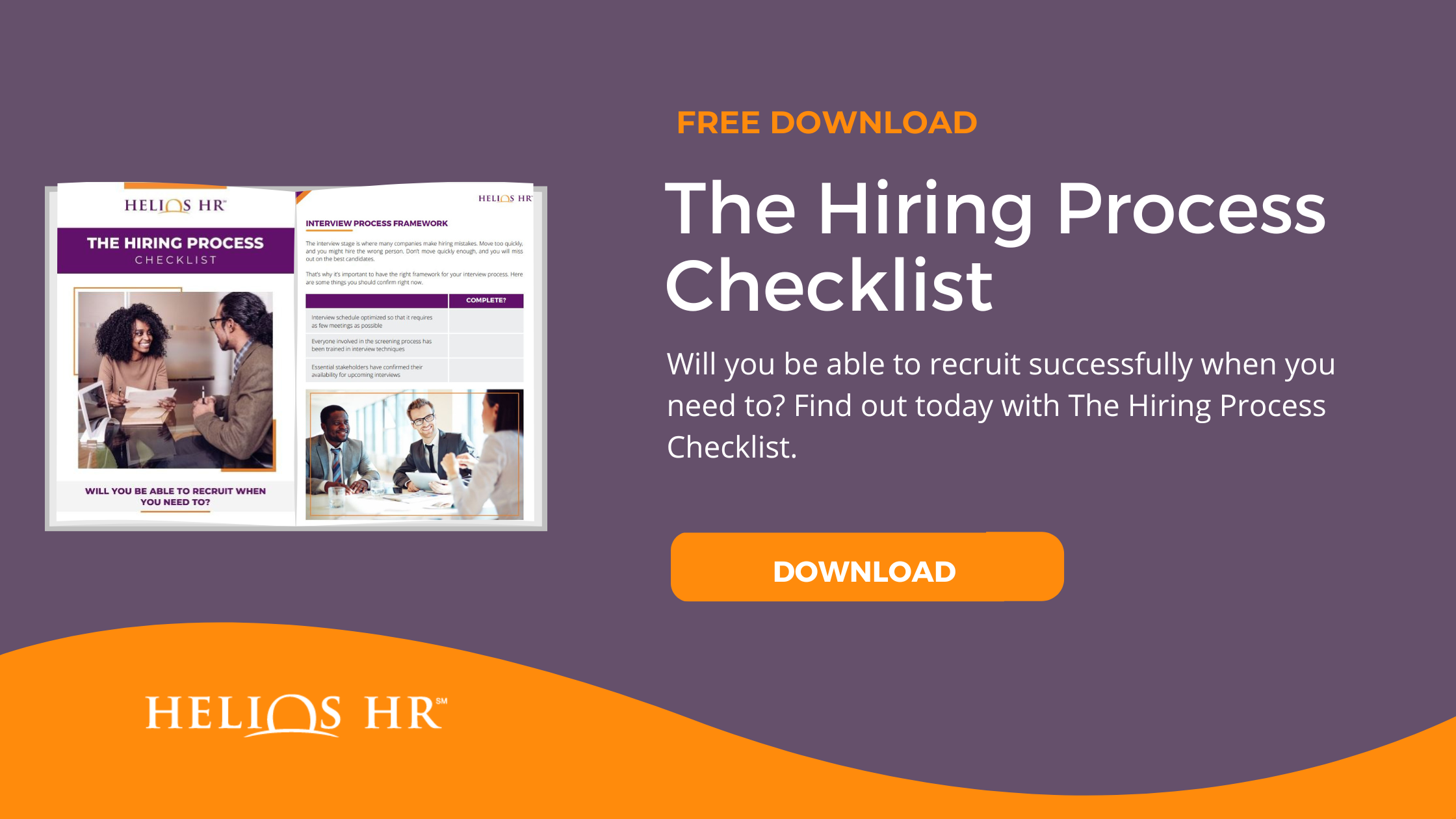By: Megan Cowman on July 31st, 2023
Expand Your Talent Pool by Recruiting Passive Job Seekers
When you advertise a vacancy, you’ll receive a wide variety of applicants. Some candidates might be underqualified; others might be overqualified. If you’re lucky, a few of them will be perfect. But every applicant has one thing in common.
They’re all active job seekers.
But what about people who aren't job-hunting? Lots of talented professionals would be interested in exploring new opportunities—in fact, around 61% of people are thinking about making a career change in the next twelve months. However, most of these people are not actively searching for a new job.
These people are passive job seekers, and they’re a vital source of talent for your hiring process.
What is a passive job seeker?
Around 70% of professionals can be termed passive job seekers, but what does this term mean, exactly?
All currently employed people belong to one of three categories:
- Non-job seekers: People who are content with their current careers and don't intend to consider offers from other employers.
- Active job seekers: People who engage with other employers' recruitment process in some way. This can include people who regularly check job listing websites, speak to recruiters, or send resumes to hiring managers.
- Passive job seekers: Passive job seekers don’t take any active steps to find a new role, so they're not engaged with any aspect of the recruitment process. However, they are considering a change and might be open to the right offer--if they hear about it.
Passive job seekers are often the most promising candidates, but reaching them is the problem. They won’t see your vacancy listing on a hiring website, which means they’ll never send an application.
The solution? You have to find them.
How to create a recruitment process for passive job seekers
To find passive talent, you’ll need to create the right kind of hiring process. This can involve a major rethink of the way you source candidates and advertise open positions.
Here are some steps to help you build a process that will connect with passive job seekers.
1. Identify your ideal recruit
Talk to recruiters and hiring managers to ensure you clearly understand your ideal candidate. You'll need clarity about things like education requirements and professional background.
You'll also need details like:
- What does their industry jargon sound like?
- What kind of technology do they use?
- What are their typical day-to-day responsibilities?
Knowing your ideal hire will make it easier to identify them and communicate in a way they'll find appealing.
2. Look for ways to make contact
You'll need to find ways to put your message in front of passive job seekers, which means that you'll need to discover where they hang out. This can include channels such as:
- Online communities and publications
- Niche job boards
- Professional organizations
- Networking events
- College alumnus communications
You can also reach out to institutions and professional groups to see if they can help you communicate details of your open vacancies.
3. Write your job description like an advertisement
Active job seekers try to sell themselves to employers, but the tables are turned when you're dealing with passive job seekers. Not only are you trying to sell them on your employer brand, you're also trying to convince them to leave their current role.
That's why you'll need an exciting and persuasive job description. When you're writing your job listing, focus on things like:
- Employee benefits and Total Rewards
- Professional development and career path opportunities
- Organizational culture
- Commitment to diversity, inclusion, and equity
- Your company's strategic mission
Your goal at this stage is to generate engagement, so don't worry too much about specifics right now. If people are interested in applying, you can provide them with more detail.
4. Reach out to suitable candidates
Found someone who seems like a good fit? Now is the time to reach out and let them know you're interested. The best way to reach out to candidates is via email or social media, and here are a few best practices to help you craft an effective message.
- Get straight to the point: Explain why you're contacting them right from the outset. Try to keep your entire message short, ideally under 300 words.
- Explain why they're a good fit: Let them know what aspect of their resume or profile makes them suited to the positions.
- Try to create a rapport: If you have anything in common with the applicant, such as a mutual friend, you can mention this in your message. Otherwise, compliment them on a recent achievement or mention something that they recently posted on social media.
- Provide job information: Attach the job description with the salary range. This will allow them to make a quick decision about their potential interest.
- Schedule a call: Instead of playing email tennis, try to get the candidate on the phone. One quick phone call will allow you to confirm their interest, answer their questions, and arrange for next steps.
Quick, concise communication will save everyone a lot of time. It also helps to create a positive candidate experience, which increases your chance of finding the right person.
5. Speak to candidates on the phone
Your first phone call with the candidate is a chance to get them excited about applying. The recruiter or hiring manager should take this time to create a connection. Some tips for doing this include:
- Be friendly: Take a few moments for small talk and getting to know each other. Reassure the candidate that you're on their side and you'd love to help them get the job.
- Be positive: Talk up the best aspects of the organization, especially the most valuable rewards. Does your company offer flexible working, generous PTO or tuition reimbursement? Those are some of the most popular benefits among job seekers.
- Be transparent: It's important to set expectations so the candidate knows exactly what's on offer. Encourage the passive job seekers to ask questions and learn about your company.
You can use this phone call for some basic candidate screening, but remember that your goal is to encourage passive job seekers to apply.
6. Rethink your interview process
Passive job seekers don't want to go through a multi-round interview process that lasts months. A drawn-out interview process could cause them to lose interest and withdraw their candidacy.
Here are a few tips to keep things moving (while also ensuring that you thoroughly interview each candidate:
- Keep communicating: Stay in touch during every step of the process and make sure the candidate is always clear about what happens next.
- Schedule quickly: Don't leave weeks between interviews. When you're ready to proceed, try to arrange the next meeting as soon as possible.
- Make interviews inviting: Remember, passive job seekers need to be won over. Your interviewers need to be warm, positive, and ready to talk about the benefits of your company. In some cases, this might require additional coaching for your interviewers and hiring managers.
An outstanding candidate experience will make hiring the person of your dreams much easier, especially if that person is a passive job seeker.
7. Be ready to negotiate your offer
Passive job seekers are much more likely to negotiate your offer. They have some leverage, as they're already comfortable in a job with salary and benefits. If you won't meet their expectations, they can simply stay where they are.
As with any negotiation, it's important to be realistic. Make sure that you stay within your agreed salary structure and don't offer benefits if you can't deliver them.
In some cases, you may be able to use one-off signing bonuses to entice a passive job seeker. Alternatively, you might win them over with a desirable benefit, such as a remote or hybrid working option.
Need help building your team?
Active or passive—it’s hard work to attract top talent. The job market is highly competitive, which is why open positions remain unfilled for so long.
Give yourself the best chance of finding the best candidates. Helios HR specialise in all areas of HR consulting, including talent acquisition and Recruitment Process Outsourcing. Our recruiting experts can help you find quality candidates, fill vital roles, make use of ATS and other recruiting tools, and help you develop a more effective recruitment strategy.
Book a call with a Helios HR consultant today. Let’s talk about how to find the people you need for your team.






